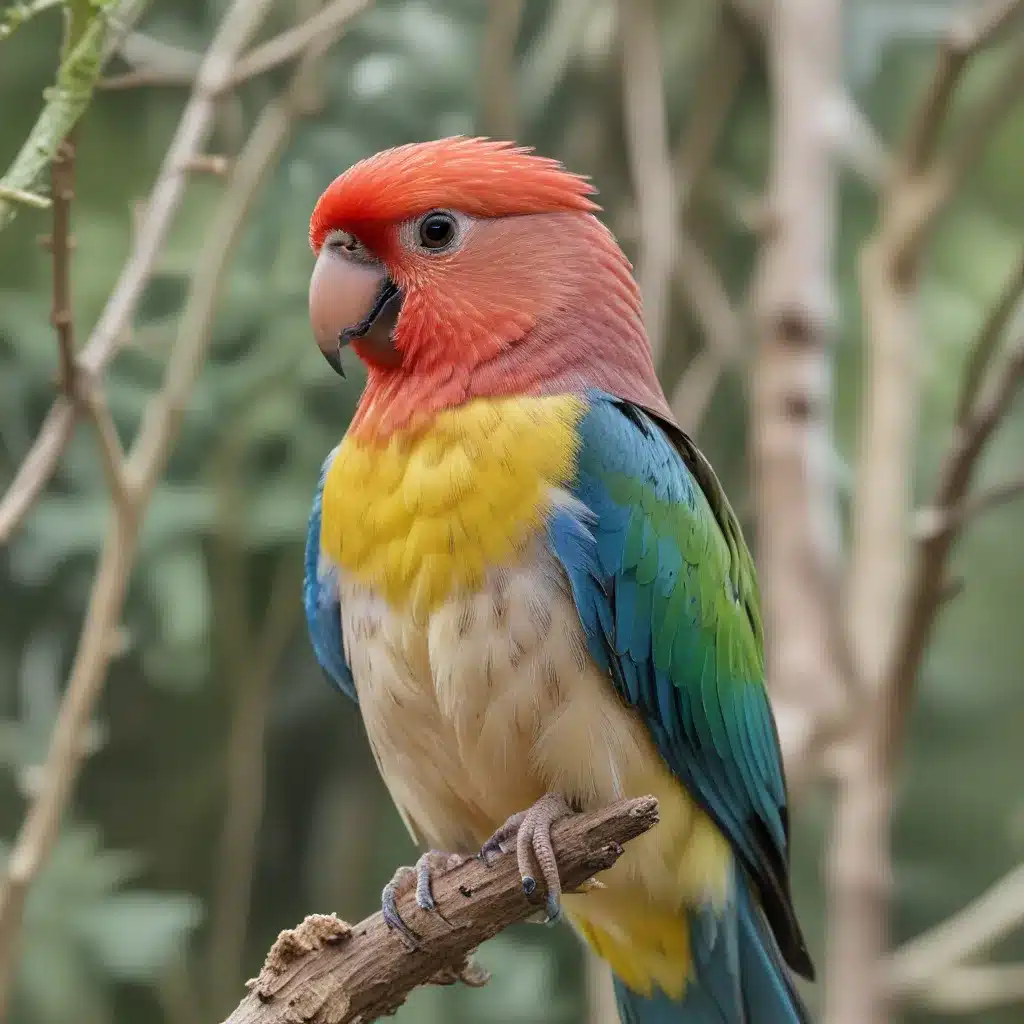
Avian Companions
As an experienced avian caretaker, I’ve had the privilege of working with a wide variety of feathered companions. From the vibrant plumage of parrots to the soothing song of canaries, each species brings its own unique charm and captivating characteristics. Whether you’re drawn to the playful antics of cockatiels or the regal presence of macaws, companion birds can enrich our lives in countless ways.
Companion Bird Species
Common Companion Bird Types
Budgies, cockatiels, parakeets, and lovebirds are some of the most popular companion bird species. These smaller birds often thrive in aviary-style habitats and form strong bonds with their owners. Their lively personalities and manageable care requirements make them excellent choices for first-time bird owners.
Exotic Avian Companions
For those seeking a more unique avian companion, species like African greys, Amazon parrots, and cockatoos offer unparalleled intelligence and affection. These larger, long-lived birds require specialized care and extensive training, but their remarkable cognitive abilities and captivating behaviors make them highly rewarding companions.
Bird Anatomy and Physiology
To provide the best possible care for our feathered friends, it’s essential to understand their intricate anatomy and physiology. Birds’ lightweight, hollow bones and powerful flight muscles allow for effortless soaring, while their efficient respiratory systems enable them to thrive in diverse environments. Comprehending these adaptations is key to ensuring your bird’s physical and mental wellbeing.
Holistic Wellbeing for Birds
Maintaining the overall health and happiness of our avian companions requires a multifaceted approach, addressing both their physical and behavioral needs.
Physical Health Considerations
Nutrition and Diet
A balanced, high-quality diet is the foundation of a bird’s physical wellbeing. Providing a variety of nutrient-dense foods, such as pellets, fresh fruits, and vegetables, ensures your bird receives all the essential vitamins, minerals, and proteins it requires. Consulting with an avian veterinarian can help you develop a personalized feeding plan tailored to your bird’s specific needs.
Habitat Requirements
Creating a suitable, enriching environment is crucial for your bird’s physical and mental health. Spacious cages or aviaries, with ample perches, toys, and opportunities for natural behaviors, allow your feathered friend to thrive. Regularly cleaning and disinfecting the habitat, while monitoring temperature, humidity, and lighting, helps maintain optimal conditions.
Behavioral and Emotional Needs
Social Interactions
Birds are highly social creatures, and companionship is essential for their wellbeing. Providing opportunities for interactive play, training, and bonding time with their human caregivers can help meet their social needs. In some cases, introducing a compatible companion bird may also benefit your pet’s emotional and behavioral health.
Enrichment Activities
Engaging your bird in a variety of enrichment activities, such as foraging challenges, puzzle feeders, and rotating toys, helps stimulate their natural behaviors and prevent boredom. Encouraging your bird to explore, problem-solve, and express their innate curiosity can significantly enhance their overall quality of life.
Mental Wellness in Avians
Avian species possess remarkable cognitive abilities and emotional intelligence, which must be nurtured to support their holistic wellbeing.
Cognitive Capabilities
Problem-Solving and Learning
Birds demonstrate impressive problem-solving skills, often devising creative solutions to overcome challenges. Providing your feathered friend with puzzles, novel objects, and training opportunities can help cultivate their natural problem-solving abilities and keep their minds active.
Emotional Intelligence
Contrary to popular belief, birds are not simply instinct-driven creatures. They are capable of experiencing a range of emotions, from joy and affection to frustration and fear. Understanding and responding to your bird’s emotional cues can help you better meet their needs and strengthen the bond between you.
Stress Management Techniques
Environmental Stressors
Factors such as loud noises, sudden changes in routine, and inadequate living conditions can be significant sources of stress for birds. Minimizing environmental stressors and creating a calm, predictable atmosphere can help your avian companion feel safe and secure.
Training and Positive Reinforcement
Incorporating positive reinforcement-based training into your bird’s routine can be a powerful tool for managing stress and promoting overall wellbeing. This approach not only helps modify undesirable behaviors but also fosters a trusting relationship and a sense of control for your feathered friend.
Promotion of Avian Wellness
Adopting a comprehensive, holistic approach to avian care is essential for ensuring the long-term health and happiness of your feathered companion.
Integrative Care Approaches
Conventional and Alternative Therapies
While traditional veterinary care is essential for addressing specific medical concerns, complementary therapies, such as environmental enrichment, behavior modification, and even acupuncture, can provide a well-rounded approach to your bird’s wellness. Collaborating with a qualified avian veterinarian who embraces integrative medicine can help you explore the most suitable treatment options.
Owner Education and Support
Responsible Bird Ownership
Becoming a responsible bird owner involves educating yourself on the unique needs and requirements of your avian companion. Researching the specific species, seeking guidance from experienced caretakers, and staying informed on the latest avian care practices can help you provide the best possible environment for your feathered friend.
Community Resources
Connecting with other bird enthusiasts, whether through online forums, local bird clubs, or avian rescue organizations, can be a valuable source of support, advice, and shared experiences. Engaging with a supportive community can help you navigate the joys and challenges of avian companionship.
By understanding the intricate physical, behavioral, and cognitive needs of our avian companions, we can foster an environment that promotes their overall wellbeing and strengthens the bond we share. Through a holistic approach to avian care, incorporating evidence-based practices and a deep appreciation for these remarkable creatures, we can ensure our feathered friends thrive, both mentally and physically. To learn more about creating a nurturing environment for your avian companion, visit Mika Birds Farm and explore our extensive resources on avian wellness and responsible bird ownership.


